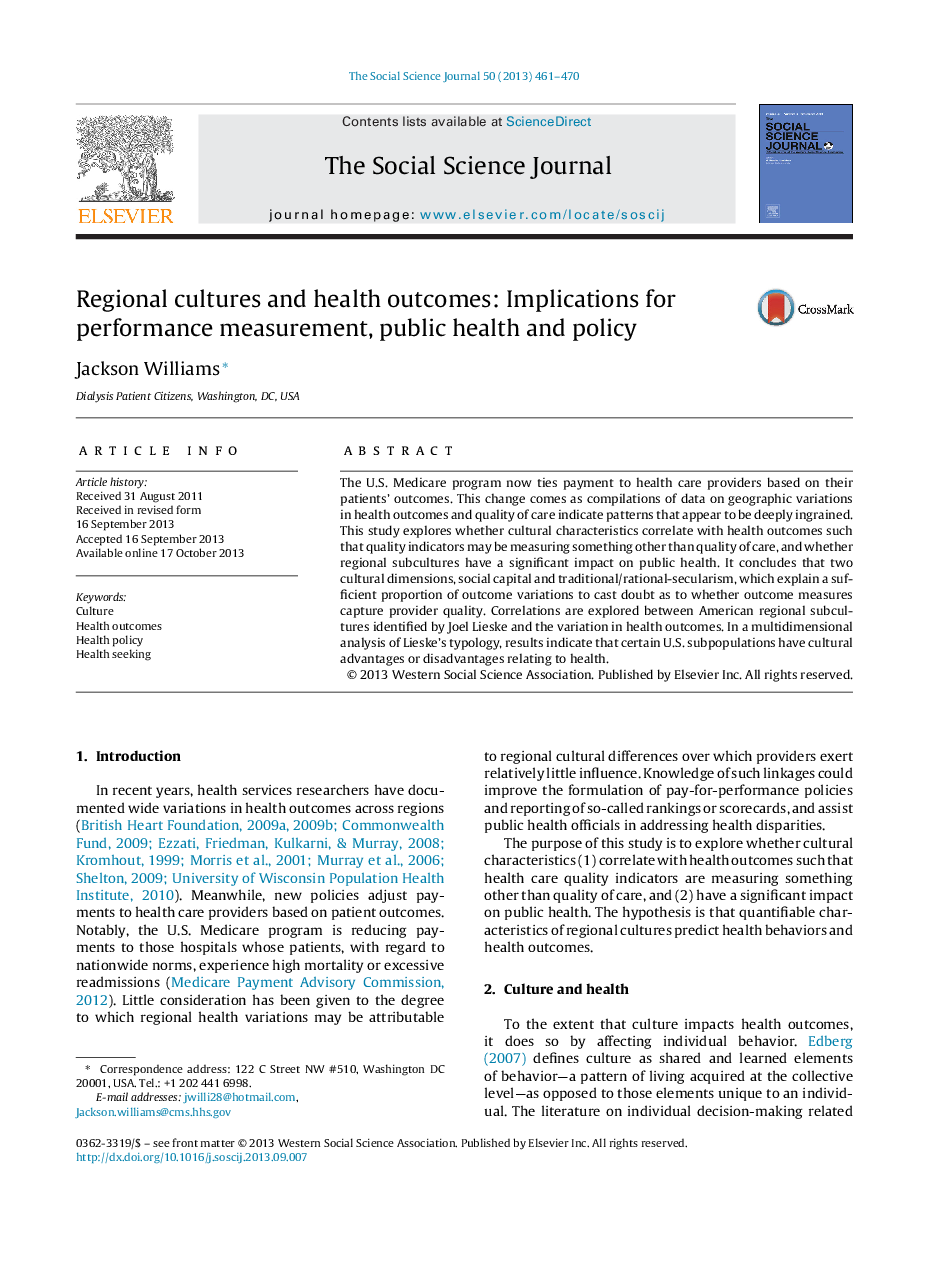| Article ID | Journal | Published Year | Pages | File Type |
|---|---|---|---|---|
| 140145 | The Social Science Journal | 2013 | 10 Pages |
•Health outcomes correlate with categories of American regional subcultures.•Health outcomes correlate with cultural dimensions.•Correlations of outcomes with cultures casts doubt on accuracy of quality measures.
The U.S. Medicare program now ties payment to health care providers based on their patients’ outcomes. This change comes as compilations of data on geographic variations in health outcomes and quality of care indicate patterns that appear to be deeply ingrained. This study explores whether cultural characteristics correlate with health outcomes such that quality indicators may be measuring something other than quality of care, and whether regional subcultures have a significant impact on public health. It concludes that two cultural dimensions, social capital and traditional/rational-secularism, which explain a sufficient proportion of outcome variations to cast doubt as to whether outcome measures capture provider quality. Correlations are explored between American regional subcultures identified by Joel Lieske and the variation in health outcomes. In a multidimensional analysis of Lieske's typology, results indicate that certain U.S. subpopulations have cultural advantages or disadvantages relating to health.
